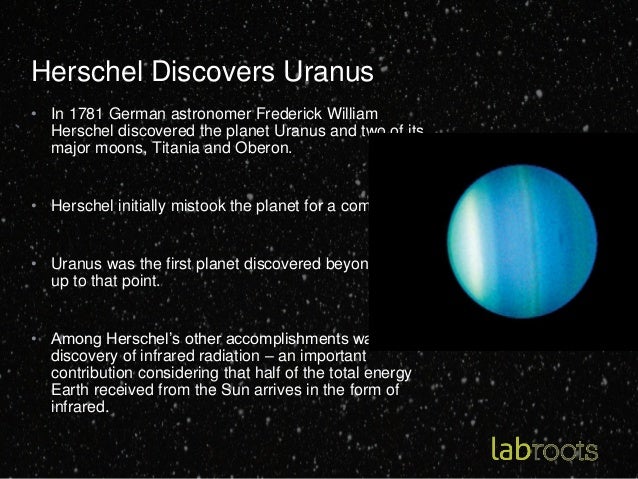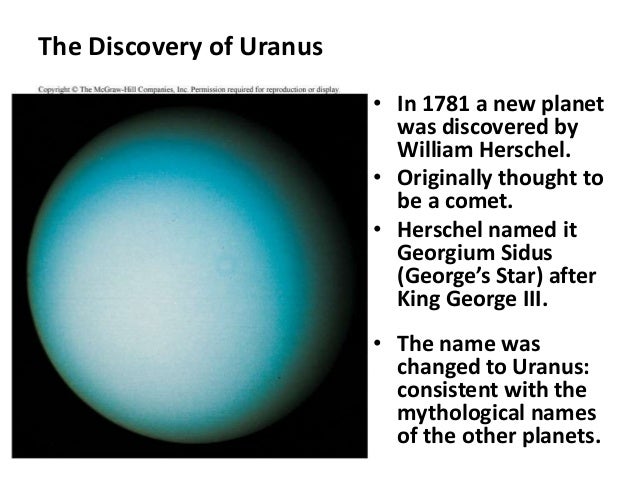Uranus was discovered in 1781 by william herschel who originally thought the planet was a star or a comet

Uranus: Discovered as a Star or a Comet?

When it comes to the fascinating world of space exploration, there are countless celestial bodies that have captured human curiosity throughout history. One such intriguing planet is Uranus, which was actually discovered by accident. In 1781, the British astronomer William Herschel stumbled upon this enigmatic world, initially believing it to be either a star or a comet.
The planet Uranus, named after the ancient Greek god of the sky, has a mesmerizing and mysterious presence in our solar system. With a diameter nearly four times that of Earth, Uranus is the third-largest planet and takes seventh place in terms of mass. However, despite its prominence, it remained undiscovered by ancient astronomers due to its faintness and slow movement across the night sky.
William Herschel was a musician and music composer by profession, but astronomy soon captured his interest. On the fateful night of March 13, 1781, while observing the stars using a homemade telescope, Herschel noticed an unusual object that appeared star-like, but with a noticeable disc instead of a point of light. Intrigued, he initially thought that he had discovered a new comet. However, as he continued to observe this celestial object, he realized that it was different from any comet known at the time.

Herschel’s diligent observations and calculations eventually led him to the conclusion that what he had discovered was an entirely new planet. Initially, he named it “Georgium Sidus” after King George III of England, to gain the support and favor of the British government. However, this name wasn’t well-received internationally, and in 1850, the planet was officially renamed Uranus.
Interestingly, Herschel’s discovery of Uranus not only made him world-famous overnight but also had profound implications for our understanding of the solar system. Up until that point, astronomers believed that the solar system extended only as far as Saturn. The existence of Uranus introduced an entirely new perspective, expanding our knowledge of our cosmic neighborhood.
Today, with advancements in technology and space exploration, we have learned a great deal about Uranus. It is an ice giant primarily composed of hydrogen, helium, and methane, which gives it its distinctive blue-green color. The planet’s atmosphere is filled with violent storms and extreme weather conditions, making it a fascinating subject of study for scientists.
As we delve deeper into the mysteries of Uranus, the accidental discovery made by William Herschel in 1781 continues to shape our understanding of the universe. From a simple observation in the night sky to revolutionizing our perception of the solar system, Uranus remains an awe-inspiring and captivating celestial wonder.
Source: NASA Solar System Exploration - Uranus
Related Posts
Quick Links
Legal Stuff

